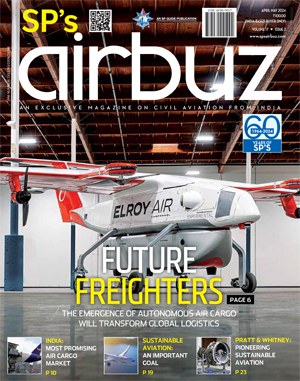GE Aviation Partners with BAE Systems on Energy Management for Hybrid Electric Flight Demonstration Program
GE Aviation has selected BAE Systems to design, test and supply energy management components for GE's recently announced megawatt (MW) class hybrid electric propulsion system in development.
For this demonstration program, BAE Systems will provide the battery and related cabling used to store electricity and drive the motor/generator GE Aviation is building, controlled by GE's power electronics.
Previously, NASA and GE Aviation announced the launch of a new research partnership to demonstrate flight readiness of an integrated hybrid electric propulsion system for single-aisle commercial aircraft. Plans are to conduct ground and flight tests in the mid-2020s.
Through NASA's Electrified Powertrain Flight Demonstration (EPFD) project, GE will test hybrid electric configurations on a modified Saab 340B to help prove out the technology.
"We are excited about the opportunity to collaborate with BAE Systems on this demonstrator to advance energy storage systems at altitude," said Mohamed Ali, vice president and general manager of engineering for GE Aviation. "GE Aviation is leading the development of hybrid electric technology for commercial aviation through this NASA collaboration. Energy management is an important component of our research program toward a more electric future of aviation with reduced carbon emissions and less reliance on fossil-based jet fuels."
In addition to energy storage, BAE Systems will provide the high-integrity controls and cables for this demonstrator's power management system, which will be tested on CT7-9B turboprop engines. The company will also leverage its investment in aircraft electrification and expertise in flight-critical systems to provide guidance for flight certification requirements.
"We are harnessing our expertise in energy management systems and flight critical controls to support the development of electric propulsion systems for the future of flight," said Ehtisham Siddiqui, vice president and general manager of Controls and Avionics Solutions at BAE Systems. "This effort continues our longstanding relationship with GE."
BAE Systems has over 25 years of experience developing and integrating electric propulsion systems for buses, boats, heavy-duty trucks, and military vehicles. The company also has more than 40 years of experience in controls and avionics for military and commercial aircraft. Work on this project will be conducted at BAE System's state-of-the-art facility in Endicott, N.Y.
GE Aviation has been maturing components of high-power hybrid electric systems for more than a decade, including motors, generators, power convertors and power management systems. The electrification technologies GE Aviation is advancing are highly compatible with Sustainable Aviation Fuel and hydrogen, as well as advanced engine architectures such as the open fan and new compact engine core designs.
Hybrid electric propulsion technologies can save fuel and optimize engine performance, helping the aviation industry reach its commitment of net-zero CO2 emissions from flight by 2050.
Earlier this year, GE Aviation also announced it's partnering with Boeing to support flight tests for the same hybrid electric demonstration program. Boeing and its subsidiary Aurora Flight Sciences is providing GE Aviation with the aircraft, airplane modification, aircraft integration and flight-testing services. That work includes nacelle manufacturing, flight deck interface design and software, aircraft-level performance analysis, and systems integration.





